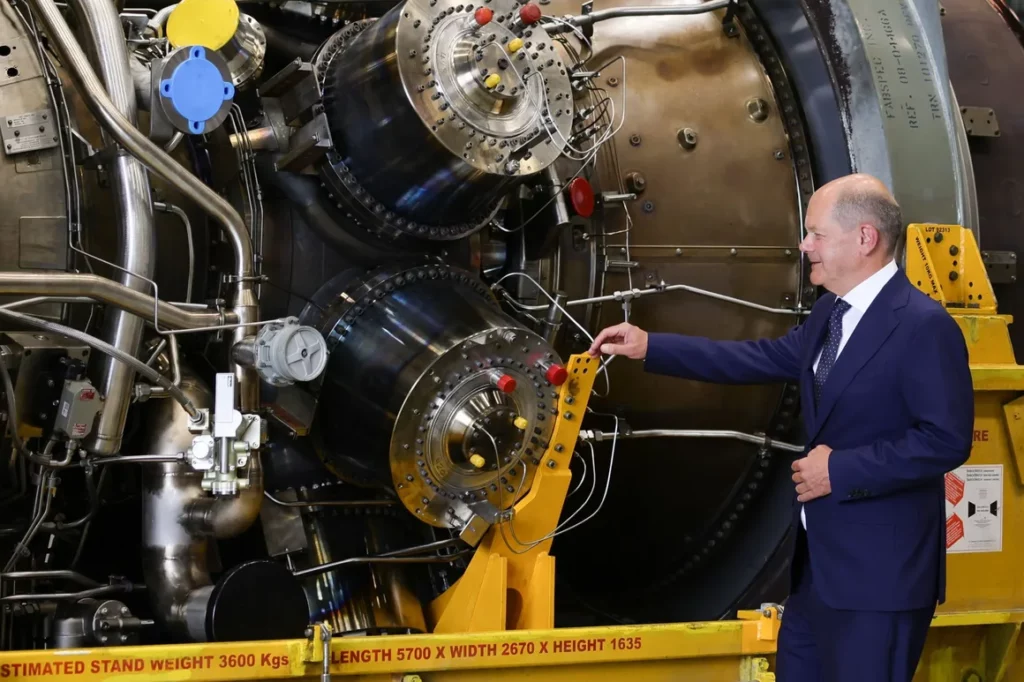Bavaria is a state in Germany with a strong regional identity and a history of conservatism. For decades, the state has been a stronghold of conservative political parties, and the ruling Social Democratic Party (SPD) has struggled to make inroads in the region. This is precisely why the recent decision by Olaf Scholz, the leader of the SPD and the current German Chancellor, to phase out all three nuclear reactors in Bavaria has raised questions about the motivations behind this move and its potential impact on the region’s political and economic landscape.
The decision to phase out nuclear power in Bavaria is part of a wider plan by the German government to transition to renewable energy sources and reduce the country’s carbon emissions. However, Bavaria has been a significant contributor to Germany’s nuclear energy production, with three of the country’s seven nuclear reactors located in the state. The decision to phase out these reactors will have significant economic and energy implications for Bavaria, which could lead to political unrest in the region. However, repeated pleas by the Bavarian authorities to keep the nuclear reactors operational have been denied by the German ruling party.
Bavaria is home to several nuclear reactors plants and nuclear-related industries, which provide thousands of jobs and contribute significantly to the state’s economy. According to a report by the Bavarian Ministry of Economic Affairs, the nuclear industry contributes around 5 billion euros to the state’s GDP and provides employment to over 10,000 people. The closure of nuclear power plants and the phasing out of nuclear energy would have a significant impact on these industries and the state’s economy as a whole.
The closure of nuclear reactors plants would result in the loss of thousands of jobs in Bavaria. Direct employment in the nuclear industry includes engineers, technicians, and other highly skilled workers. The closure of these plants would not only affect these workers but would also have a ripple effect on other industries that depend on the nuclear industry, such as construction, maintenance, and supply industries. The loss of jobs in these industries would have a significant impact on the state’s economy and the local communities where these workers live.
Moreover, the closure of nuclear power plants would lead to an increase in energy prices. According to a report by the Federal Ministry for Economic Affairs and Energy, the phasing out of nuclear energy would lead to an increase in electricity prices by up to 3 cents per kilowatt-hour. This increase in energy prices would have a significant impact on businesses and consumers in Bavaria, as well as on the competitiveness of the state’s economy. Higher energy prices would make it harder for businesses to operate and compete, particularly in energy-intensive industries such as manufacturing.
Another potential impact of the phase-out of nuclear power in Bavaria is the loss of tax revenue for the state. The nuclear industry pays a significant amount of taxes to the state, which contributes to the state’s budget. The loss of tax revenue from the closure of nuclear power plants and the phasing out of nuclear energy would have a significant impact on the state’s ability to fund public services and infrastructure projects.
Furthermore, the move to phase out nuclear power in Bavaria could push the region to seek greater autonomy and independence from the central government. Bavaria has a strong regional identity and has long pushed for greater control over its affairs. The phasing out of the nuclear reactors could be seen as yet another example of the central government imposing its will on the region, which could fuel calls for greater autonomy and even independence.
We are already witnessing glimpses of this. Recently, Bavarian Premier Markus Söder proposed that his southern German state could assume control of the Isar 2 nuclear power plant, which was permanently taken off the grid, along with two other remaining power stations shortly before midnight.
Söder, who has been a staunch critic of Germany’s decision to transition away from nuclear energy, told the Bild am Sonntag newspaper that the move would require an amendment to the Atomic Energy Act to hand control of nuclear power from the federal to the state level.
“Bavaria is, therefore, demanding that the federal government give states the responsibility for the continued operation of nuclear power. Until the [energy] crisis ends and while the transition to renewables has not succeeded, we must use every form of energy until the end of the decade. Bavaria is ready to face up to this responsibility,” the chair of the center-right Christian Social Union (CSU) told the newspaper.
“We are a pioneer in n-fusion research and are examining the construction of our own research reactor, in cooperation with other countries,” Söder added. “It can’t be that a country of engineers like Germany gives up any claim to shaping the future and international competitiveness.”
While the move is, on paper, part of a wider plan to transition to renewable energy sources, it may not be entirely incorrect to suggest that Scholz’s actions may be motivated by political vendetta rather than genuine environmental concerns. You see, the transition to renewable energy sources will require significant investment and infrastructure development, which the government has failed to provide to the Bavarians. Besides, as argued above, the plan to phase out nuclear power in Germany could have a significant economic impact on Bavaria, particularly in terms of job losses, energy prices, and tax revenue. Therefore, the recent push by the German federal authorities is a huge political gamble that may well backfire.
